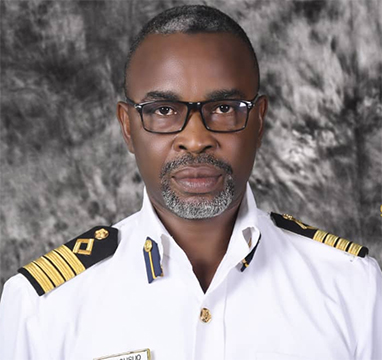
The National President of the Nigeria Merchant Navy Officers and Water Transport Senior Staff Association (NMNOWTSSA), Engr. Bob Yousuo has raised alarm over lack of unionization in Nigeria’s maritime sector, revealing that over 60 percent of maritime companies and institutions are not unionise— a situation he says is fuelling the poor welfare and dwindling morale of seafarers.
This is even as maritime stakeholders are calling for greater collaboration between unions and government to address the gaps in worker representation, improve seafarers’ welfare, and revive the industry’s professional structure.
Speaking in an exclusive interview with our correspondent last week, Engr. Yousuo, lamented the absence of Collective Bargaining Agreements (CBAs) in most companies, stating that it has led to systemic neglect of seafarers’ rights, poor remuneration, harsh working conditions, and a lack of job security.
He noted that in the past, seafaring was a well-structured and promising career path with clear progression, but the situation has deteriorated due to weak regulatory enforcement and non-unionisation.
While stressing the importance of CBAs, describing them as the “birthright” of every seafarer, the Merchant Navy boss, called on the Maritime Workers Union of Nigeria (MWUN) and relevant government agencies to intensify efforts in unionizing more companies to protect maritime workers.
“In terms of seafarers, we still have a long way to go. More than 60% of the companies have not been unionized. Many of them don’t have CBAs. It is because of this lack of CBAs in the industry that seafarers are being subjected to hardship.
“When we started our career, there was a career progression. You could work an average of 10 to 15 years if you were stable. But things have changed. Seafarers no longer have career progression, everything is scattered. The CBA is what will give them hope. Working without good welfare, collateral, or job security means you don’t have a future,” Engr Yousou said.
Also speaking, the immediate past National President of the union, Engr. Matthew Alalade noted that while junior staff union membership is automatic under Nigerian labour laws, senior staff have the liberty to decide whether or not to join a union.
Alalade attributed the low level of union engagement among senior staff to this legal provision, adding that many senior employees only seek union support when faced with personal or workplace challenges.
He also expressed concern that the reluctance of some senior staff to join unions could be affecting collective representation and protection, especially among female employees who often seek the security that unions provide.
Alalade further explained the structural distinction between the two categories under the country’s labour regulations. “NLC is automatic for level one to six. Level seven to fifteen belongs to the Trade Union Congress—that is where we belong to,” he noted.
Touching on government agencies such as the Nigerian Shippers’ Council and others yet to be unionized, Alalade attributed their status to the non-mandatory nature of senior staff union membership under current labour laws.
“For the junior staff, from levels one to six can be easily unionized. Any company they enter, if they have one or two or five members, it’s automatic. But for the senior staff, it’s based on consent. If they like, they join, if they don’t like, they don’t join. You don’t force them.”
“Most times it’s only when people have issues that they come to the union, then the union will now come up to fight for them. Many of our people say, ‘No, I don’t want to join. I don’t have any issues. If I have any issues, I will go and call a lawyer.’ But that ends up costing them more.” Alalade added.















